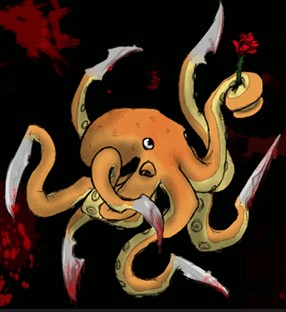Hello friends! Is there a lemmy community for roguelikes? I am, in this case, looking for a place focused on more traditional roguelikes (DCSS, CCDDA, BROGUE, etc)
If there isn’t one, no worries, send me you’re favorite unknown traditional roguelikes. I’ll tell you mine. It’s called “Empires of Eradia” it’s a more open combat focused RL with a unique twist on permadeath. It’s got great crafting and a strong focus on risk reward.


Adding to what @Grenfur@lemmy.one says:
Roguelites like dead cells etc draw inspiration and mechanics from roguelikes.
The main differences are rogue etc are tile- and turn based in a sense. Nothing moves unless you move.
And the in depth meta progression in the modern rogue lites wasn’t really a thing in roguelikes.
I remember in Nethack you could technically remove some monster types permanently and find “bones” of former runs but that’s about it.
Not everyone uses that definition, including me. A common definition would separate likes and lites more or less at the meta progression; if each run gets easier, it would be lite. This would put something like Spelunky under like and Rogue Legacy under lite, regardless of turn based.
I honestly didn’t know that about spelunky, I never really got into it.
After looking it up a bit, would you count the Tunnel Man into meta progression? Obviously not the same as unlockeables and powerups in RogueLegacy etc.
Been a while since I’ve played spelunky, is the tunnel man the shortcut to later levels? Because it exists in Shiten the Wanderer and it’s definitely still a roguelike. There are small deviations, like this, unlocking companions and keeping a storage room with limited access, but everything else is pretty straightforward roguelike.
That’s the thing in the end, no clear definition exists. The “Berlin interpretation” is just a bunch of guidelines, and even the most “roguelikes” of roguelikes deviate a bit from it (stuff like “no modes” is even broken by 3 out of 5 games the interpretation considers “canon”).
Personally I consider real time to be a bit of a stretch, but yeah, stuff like spelunky or crypt of the necrodancer blur the line.
Not Hades and Dead Cells though. I love them, but they feel way too different to play for me to consider them the same genre.
There’s room for these definitions to get fuzzy really fast, as is the case with any genre of any medium, but while the Tunnel Man is a form of meta progression, the game makes it pretty clear that using the tunnels to beat the game isn’t beating it “for real”. Even using my definition, games like Dead Cells and 20XX blur the line between -likes and -lites a ton.
Ah alright, didn’t realize Grenfur said ‘roguelike’ and not 'roguelite. I’m not that big a fan of roguelikes
Roguelikes are like beer. Often times you have to find one you like to get a taste for them. That said, beer is also not for everyone :).
That sounds like a good analogy :)
I think of roguelikes as a game genre often optimized for the long-term player.
Let’s say that you want to make an image meme involving a cat. Microsoft Paint, if you’re on Windows, is a good choice for that. It’s very easy to pick up. So you spend maybe a ten minutes learning the tools and then you can make cat memes, add text to an image, and paint simple diagrams on the thing.
Photoshop is a bad tool for that, for most people. The vast majority of Photoshop just adds a lot of complexity that is totally unrelated to making a cat meme.
However, let’s say that your job is making marketing brochures to sell houses. You want to use drop shadows and you want to airbrush out power lines from phots. You can do it in MS Paint, but the tools are very limited and the result probably won’t be great. The amount of time you’ll require to get a couple of good brochures is going to outweigh the time investment required to learn Photoshop’s much more extensive set of tools.
Paint makes sense for users who are going to use the thing a limited number of times. Photoshop makes sense for someone who is going to spend a decade where a lot of their daily work is manipulating images.
I think that many roguelikes games are kind of like Photoshop is. They are heavily designed to be ideal for the long-term user.
Roguelikes often don’t have very pretty graphics. But…I think that a lot of value of pretty graphics is in their novelty. You see them the first time, it’s really impressive. The fiftieth or five-hundreth time, it starts to become old hat. If you play a roguelike for a decade, the graphics don’t provide a lot of benefit.
Roguelikes often have single-key combinations that the player needs to memorize to perform operations. That’s a hefty learning curve for a new player, but if you’ve been doing it for a year, it just doesn’t matter. You got the “muscle memory” in the first month or so.
Roguelikes often don’t have great “intro” systems to help teach you the game. Having a good tutorial system is a big deal if you’re gonna play the game for ten hours and three are spent learning game mechanics. I remember some great essay about how Super Metroid was very carefully designed to teach the player game mechanics without him noticing. Having a really good system for doing that is really important if a game will be played for maybe ten hours. But if they’re going to play it for a thousand hours…well, optimizing the time spent learning the mechanics becomes less critical, because that time is a much-smaller portion of the time spent playing the game.